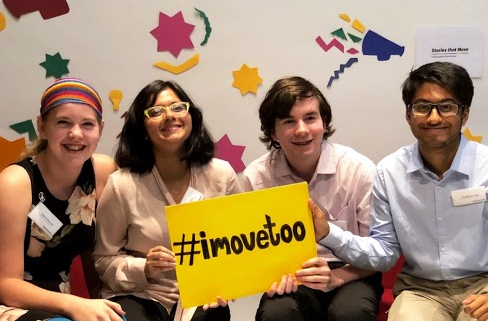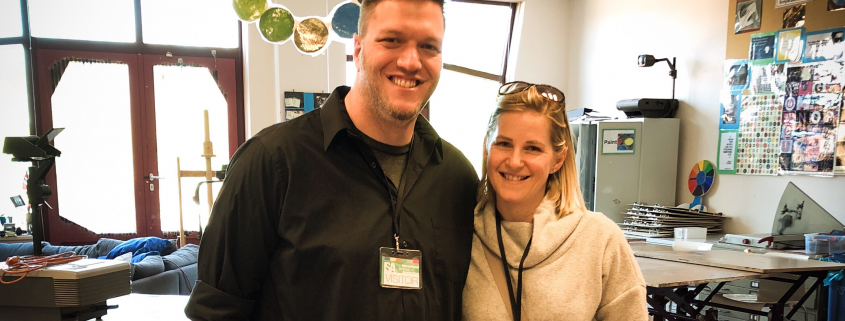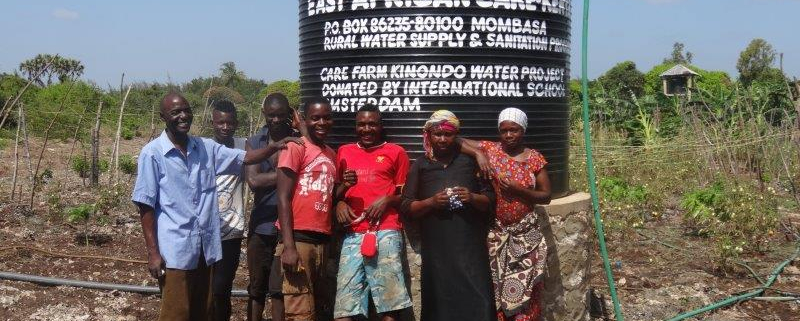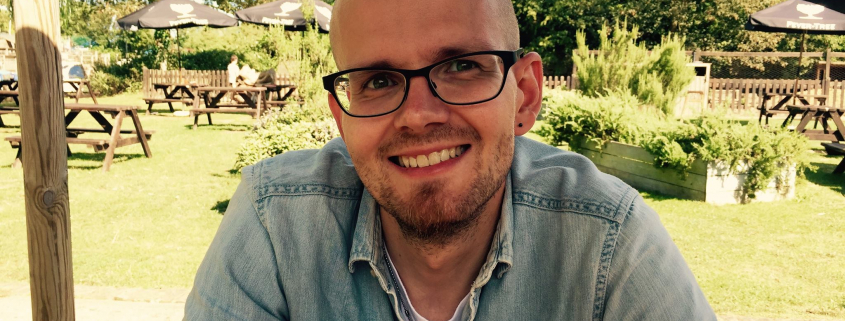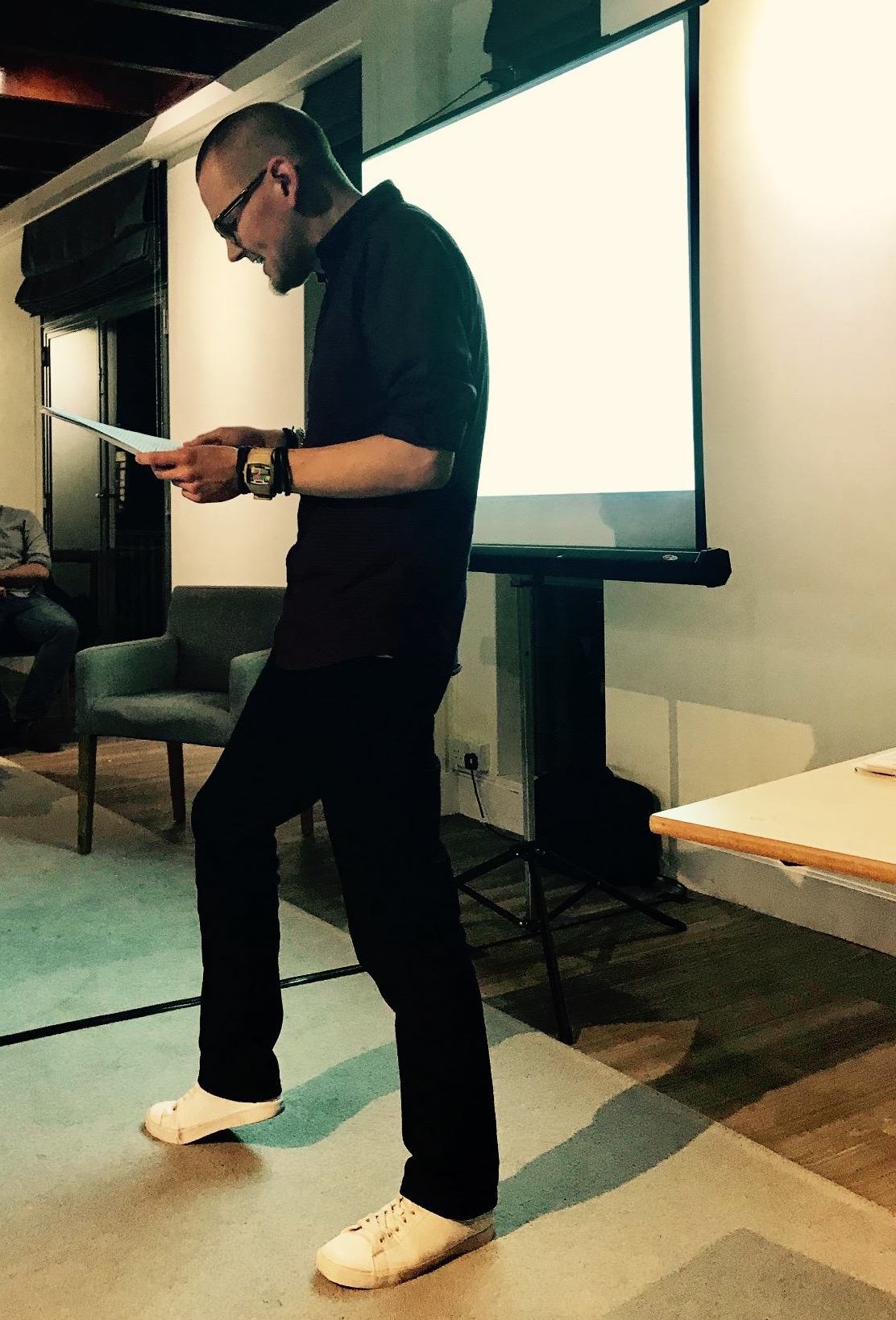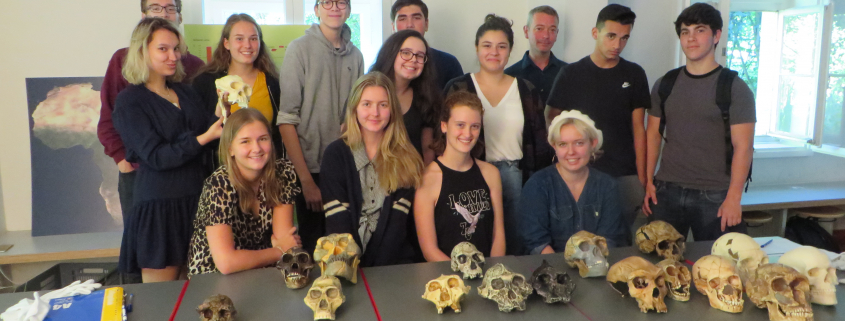Students and teachers help develop an online toolbox against discrimination
The International School of Amsterdam partnered with the Anne Frank House in an educational project to combat prejudice and intolerance
“In a world where discrimination is pervasive, inescapable, and rooted in the entire history of humanity’s existence, the next generation must be equipped to take on injustices wherever they may be found,” says Rania Khan, a Middle Years Programme (MYP) student at the International School of Amsterdam (ISA), in the Netherlands.
Rania is part of a group of students at the school, who have helped to develop Stories that Move, a free online toolbox for schools, which challenges learners (aged 14-17 years) to think critically about diversity and discrimination.
Created by the Anne Frank House with partners from across Europe, it is available in seven languages and has five learning paths, featuring assignments, information and short films of young people’s experiences of discrimination.
ISA was approached to become a project partner by the Anne Frank House in 2015, explains English teacher Shannon Hancock, who is one of the programme leaders. The school was able to offer extensive experience with online learning, a diverse student population (60 nationalities), innovative pedagogical practices, as well as an IB ethos of international-mindedness.
“The aim of the project is to create a framework and space for safe, open dialogue about identity, discrimination, and to inspire students to take positive action in one’s local and/or global community,” says Hancock.
It fits with the MYP, which encourages students to make practical connections between their studies and the real world and aims to develop active learners and internationally minded young people who can empathize with others and pursue lives of purpose and meaning.

Testing the toolbox
Students and teachers at the school have made an important contribution to the project. Hancock piloted the materials online and offline with students, as well as providing input on teaching strategies, content, design of lesson tracks and refining the learning paths. While Michael McGlade, Director of Educational Technology at ISA, has acted as a technical design consultant.
“The grade 8 teaching team also collaborated closely, by trialling the materials in their homerooms and providing feedback to the Stories that Move partners on both the look and feel of the online learning tool,” says Hancock.
McGlade and Hancock presented the project at two conferences and helped facilitate the international project launch and teacher workshops in Berlin in July.
Student input
Four students from ISA—Rania (from Bangladesh), Zozi Lencz (from Hungary), Trinabh Banerjee (from the Netherlands) and Leilani Hancock (from the US)—participated in workshops at the Anne Frank House and provided feedback and ideas. They were also asked by the Stories that Move team to present and lead a social media campaign at the international project launch.
The project has made a deep impression on the students. Leilani says: “Through these experiences, I have learned that we all deal with discrimination and intolerance each and every day, granted to varying extents. No one is immune.”
Trinabh adds: “I consider myself well-informed. Every day, I read the news stories of people who have faced discrimination, prejudice or racism as a result of a multitude of factors. Despite this, there is only so much information one can receive from a news story. And as I reflected personally, I began to realise the importance of personal stories. It’s not every day that someone who has faced discrimination comes up to you and shares their story with you face to face.”
The students have been asked to continue as ambassadors for the tool. This autumn, they launched a creativity, activity and service (CAS) club with the goal of creating a larger team of students to develop a series of parent workshops; to reach out to other schools in the Netherlands; to continue to act as speakers for the project at conferences and workshops and to prepare as teacher/student trainers for the tool.
 The school has also expanded its use of Stories that Move—it is now being used in grade 10 English as an additional language, grade 7 individuals and societies, and grade 8 homeroom. ISA’s grade 9 individuals and societies team plans to use the discrimination learning path section this semester. The Dutch department has also expressed interest in using the online learning tool in the Dutch language.
The school has also expanded its use of Stories that Move—it is now being used in grade 10 English as an additional language, grade 7 individuals and societies, and grade 8 homeroom. ISA’s grade 9 individuals and societies team plans to use the discrimination learning path section this semester. The Dutch department has also expressed interest in using the online learning tool in the Dutch language.
The toolkit is already garnering praise. It won the prestigious 2018 Comenius EduMedia Medal for excellent teaching materials, and will be presented at the UN headquarters in New York on 2 November 2018, at a conference to mark the 70th anniversary of the Universal Declaration of Human Rights and the Kristallnacht 80 years ago.
With antisemitism, racism and discrimination still prevalent today, Stories that Move is even more necessary to combat prejudice and help create tolerance and social cohesion.
As Trinabh, says, “If we cannot value another person for who they are, then we have failed to make society work. We must value each other for who we are, as individuals and as a collective global community.”
For more information, see Stories that Move.
From the IB Community Blog
October 11, 2018 in Inside IB classroom, Middle Years Programme (MYP)

